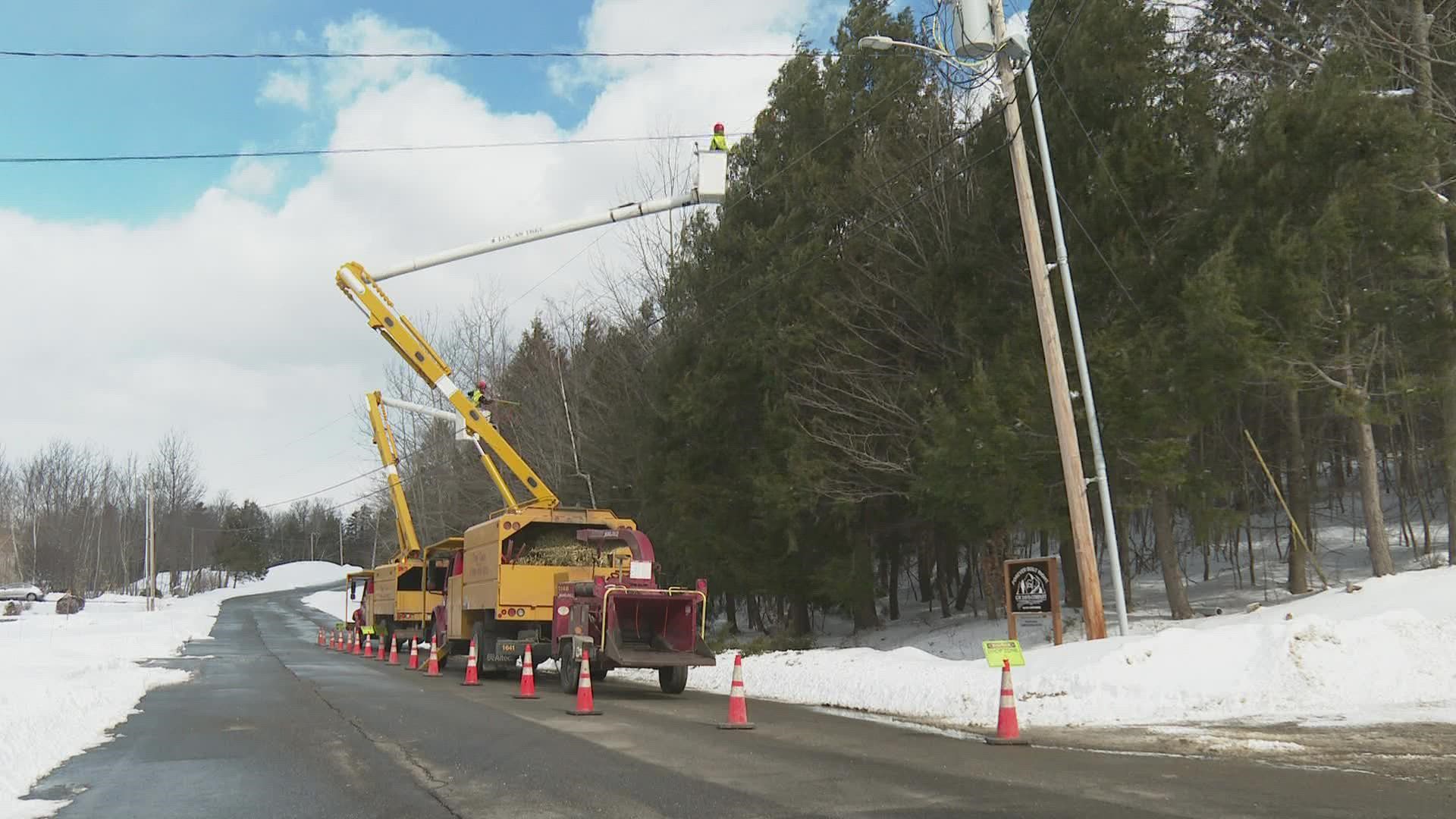AUGUSTA, Maine — Central Maine Power is investing $27 million in tree-trimming efforts this year to prevent power outages.
Maine is the most heavily forested state in the nation, and trees are one of the most common causes of power outages.
Adam Desrosiers, CMP's vice president of electric operations, said 87 percent of outages each year are because of trees and branches falling on power lines.
He said the $27 million is the most the company has ever spent on tree-trimming, which is included as part of the Maine Public Utilities Commission's approved rate plan.
He said this tree-trimming is a preventative effort, which should result in fewer power outages.
"Our infrastructure is aging, and we have to continue to invest and invest more if we want to improve the reliability," Desrosiers said. "It's always a balance where we want to invest and improve the reliable service that we provide, but we also want to be conscientious to the rates that our customers have to pay. Maintaining the vegetation around our line is key to providing reliable, safe service for our customers."
Crews trim areas on a five-year cycle. Each year, they are able to trim vegetation around roughly 4,600 miles of power lines in trimming zones approved by the Tree Care Industry Association. CMP annually trims about 20 percent of the company's roughly 24,000 total miles of lines. He said this is the third cycle, meaning CMP has been doing this for about 14 years.
Desrosiers said more than 110 crews are working on trimming this week. Most of those involve contractors, such as Lucas Tree Experts or Asplundh.
CMP also installs automated equipment along the system, which prevents brief contact by wind-blown branches from turning into a power outage for customers.
"Every time a branch lands on our power lines, people will recognize that the lights flicker," Desrosiers said. "We have what we call 'reclosers' on our system, and those are to prevent a sustained or a long-duration outage. If a branch lands on the wires, the system will reclose, so your lights will blink, and what that's doing is trying to clear the branch."
Rain and snow can cause branches to break off, but so can wind -- even on a clear day. Desrosiers said wind, wet snow, and trees with foliage are the biggest threats to power lines.
As for all the waste, Desrosiers said they donate the woodchips to people for landscaping or to places with biomass generators.

